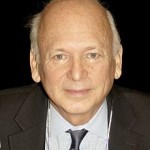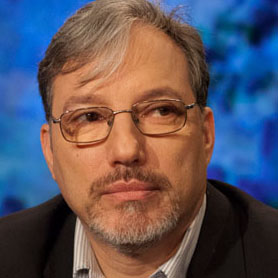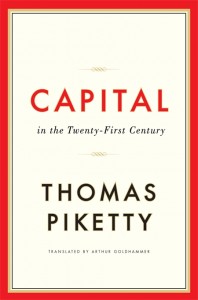This week, Bill talked with economist Paul Krugman about Thomas Piketty’s landmark new book that Bill calls “revolutionary.” You can read an excerpt at the publisher’s website, read a Q&A with Piketty at the Times Economix blog and, if you’re more visual, check out a summary of the book in six charts at The New Yorker website.
As Bill mentions in this week’s show, a lot of (digital) ink has been spilled over Piketty’s book. Reviewers have called it “a bulldozer of a book,” “magisterial,” “seminal,” “definitive,” “a watershed.” Below is a selection of reviews we think are worth reading, including several by previous Moyers & Company guests, that includes a variety of reactions — from both the left and the right — to Piketty’s groundbreaking and important work.
Paul Krugman on Why We’re in a New Gilded Age
The New York Review of Books

The result has been a revolution in our understanding of long-term trends in inequality. Before this revolution, most discussions of economic disparity more or less ignored the very rich.”
Jeffrey Madrick on the Indictment of the Invisible Hand
Special to BillMoyers.com

If Piketty had paid more attention to such market failures rather than gloss over them, he would have uncovered a treasure trove of policies that could reduce the hold on capital and distribute the benefits of the economy more widely.
Instead, he believes higher taxes are the only solution. But regulation of monopolists and Wall Street manipulators would be part of such a solution. More vigorous anti-trust prosecution would be another. Fairer and more strongly implemented labor laws would have given workers a fairer shake, as would more union-friendly regulations and a higher minimum wage. Keynesian stimulus policies have been stymied by the deficit hysteria of Republicans and not a few Democrats.”
Heather Boushey on Clichés About the American Economy
The American Prospect

Among other conclusions, the data lead Piketty to describe the popular argument that we live in an era where our talents and capabilities matter most as “mindless optimism.” The data also lead him to reject the idea that wage inequality has grown as technological change increased the demand for higher-skilled, college-educated workers.
Instead, Piketty’s evidence suggests it is the rise of what he calls the “supermanager” among the top 1 percent since 1980 that is driving the rise in earnings inequality. It is here that Piketty takes his sharpest swipe at economists. In his discussion of the thriving top decile, he points out that “among the members of these upper income groups are US academic economists, many of whom believe that the economy of the United States is working fairly well and, in particular, that it rewards talent and merit accurately and precisely. This is a very comprehensible human reaction.” Piketty agrees that in the long run, investments in education are an important component of any plan to reduce labor-market inequalities and improve productivity. But on their own they’re not sufficient.”
Dean Baker on How Capital in the 21st Century’ Is Still Mired in the 19th
The Huffington Post

For backdrop, economists and social scientists in general have a huge debt to Piketty. His work with Emmanuel Saez has advanced enormously our understanding of income distribution at the top end. The World Top Incomes Database that they constructed along with Facundo Alvaredo and Anthony Atkinson is an enormously important source of data that economists are just beginning to analyze. This book is a further contribution to providing a wealth of information about historical trends in income distribution and returns to capital over large parts of the world.”
Eric Alterman on The Power of Piketty’s ‘Capital’
The Nation

Beautifully translated by Arthur Goldhammer, Piketty’s Capital is simultaneously intellectually rigorous, historically grounded, culturally nuanced and, in important respects, politically visionary. Even nitpicky economists who take issue with some of his interpretations of the mountains of data he and his colleagues assembled feel compelled to shower the book with praise beforehand — and frequently after as well. Paul Krugman credits Piketty with inspiring “a revolution in our understanding of long-term trends in inequality.”
Piketty’s central thesis presents a profound challenge to our political system and its response to the economic crisis of the past decade. As he puts it, an “apparently small gap between the return on capital and the rate of growth can in the long run have powerful and destabilizing effects on the structure and dynamics of social inequality.” Moreover, “there is absolutely no doubt that the increase of inequality in the United States contributed to the nation’s financial instability.
The reason is simple: one consequence of increasing inequality was virtual stagnation of the purchasing power of the lower and middle classes in the United States, which inevitably made it more likely that modest households would take on debt, especially since unscrupulous banks and financial intermediaries, freed from regulation and eager to earn good yields on the enormous savings injected into the system by the well-to-do, offered credit on increasingly generous terms.”
Jacob S. Hacker and Paul Pierson on a Tocqueville for Today
The American Prospect

To Tocqueville, who largely ignored the grim exception of the South, America’s progress toward greater equality was inevitable, the expansion of its democratic spirit unstoppable. Europe, he believed, would soon follow America’s lead. He was right — sort of. Democracy was on the rise, but so too was inequality. Only with the 20th century’s Great Depression, two terrible wars and the creation of the modern welfare state did concentrations of economic advantage in rich democracies start to dissipate and the fruits of rapid growth begin to accrue generously to ordinary workers.
Now another Frenchman with a panoramic vista — and far more precise evidence — wants us to think anew about the progress of equality and democracy. Though an heir to Tocqueville’s tradition of analytic history, Thomas Piketty has a message that could not be more different: Unless we act, inequality will grow much worse, eventually making a mockery of our democratic institutions. With wealth more and more concentrated, countries racing to cut taxes on capital and inheritance coming to rival entrepreneurship as a source of riches, a new patrimonial elite may prove as inevitable as Tocqueville once believed democratic equality was.”
James Pethokoukis on the New Marxism
National Review

Piketty is making a different and broader argument, one that intentionally rises to the level of grand theory: Embedded within the very fabric of capitalism is a powerful force pushing in the direction of rising inequality. The income generated from owning capital (everything from real estate to financial assets to intellectual property) tends to exceed the rate of economic growth. And when wealth grows faster than output — as it did in the 19th century when Marx was writing and as Piketty forecasts it will again in the 21st — inequality moves toward extreme levels since income from capital is outpacing wages from labor. When capital income gets reinvested, inherited wealth also grows faster than the economy. Even worse, from Piketty’s perspective: Not only will capital owners take more and more of national income, but more and more of labor income will go to a small group of “supermanagers” who rig the executive pay system in their favor.”
Read more at the National Review »
Branko Milanovic on Returning Economics to its Classical Roots
The American Prospect

Piketty’s key message is both simple and, once understood, almost self-evident. Under capitalism, if the rate of return on private wealth (defined to include physical and financial capital, land and housing) exceeds the rate of growth of the economy, the share of capital income in the net product will increase. If most of that increase in capital income is reinvested, the capital-to-income ratio will rise. This will further increase the share of capital income in the net output. The percentage of people who do not need to work in order to earn their living (the rentiers) will go up. The distribution of personal income will become even more unequal.
The story elegantly combines theories of growth, functional distribution of income (between capital and labor), and income inequality between individuals. It aims to provide nothing less than the description of a capitalist economy.”


